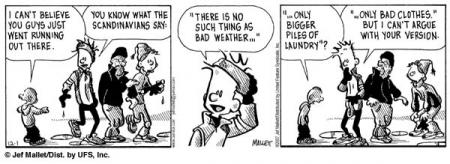A bit of a wash out of a day (quite literarily - it rained and rained and rained - thus messing up my original plan of a long walk). So took the opportunity to get a bit more work done on learning French. Also a bit of time to get back to reading Gallay's Methode. The below is the first draft on his chapter on the trill. PLEASE NOTE THIS IS WORK IN PROGRESS. If anyone wishes to use this do let me know first as it may well have been revised!
THE TRILL
The Trill that many people have demanded and demand at the wrong moment of the cadence , is a very difficult ornament to execute perfection on the horn; it results from a successive beating, flowing between two notes which are a tone or semi-tone apart. This beating must accelerate more or less inkeeping with the character of the piece in which It is in.
The method in which trills are taught by the methods published in recent years appears to me to be incorrect in that [by these methods] the tongue must remain completely foreign to the execution [of the trill] whilst effectively it is only the lips that act to move from the lower note to the higher note. Without wanting to concern us with the root of this controversial question and passing to review all the inconveniences, there emerges a parallel principle that I will nonetheless not be prevented in delivering to the appreciation of my readers.
First, the trill that is made with the lips will always have something weak, timid which contrast, often in a shocking manner, with the style of the piece in which it is used. Next it is often quivering, because, in my opinion, the lips are powerless to act with the extreme vivacity that is demanded. Finally the movement (one could almost say convulsion) of the lips, a sort of nervous contraction, makes the face grimace and tests the chin with a disagreeable trembling which can react [badly?] on the left hand.
It is on the contrary the tongue, and the tongue alone that is able to do the work to produce the trill; it’s movements are still more rapid staying concentratingly in the mouth with no exterior evidence: the trill, made thus, has the advantage of being at the same time flowing with more balance between the beats with more speed, above all between the sharp notes.
THE MANNER IN WHICH TO PERFORM TRILLS
The trill is not easily made with the same facility on all notes of the scale, it will be necessary at first to work on the open notes which are more favourable to this ornament than the stopped notes.
The tongue will emit with softness the first note, as in an ordinary tongued note; then to more easily alternate between the lower note to the upper note, the tongue will lightly beat the internal edge of the lips, whilst strongly supporting the breath; these beats must be, so to speak, undulating, [the tongue] must in a way never strike a blow.
It is easy to make an exact idea of the mechanical play of the tongue in the trills: after hitting each note, the tongue carries itself forward, and comes, as I said, more high, it brushes the internal edge of the lips, then withdraws onto itself in a retroactive movement, and so on until the breath expires. This goes and comes continually (if I am able to thus express myself), the two notes flow closely together, and produce the trill.
It is necessary above all to give the same value to each of the two notes, to flow between them equally without jerking, and to accelerate the beating progressively until one succeeds in making quickly moving trills. It is only by constant work and stubbornness that one will succeed in obtaining the speed and equality in the beating of the notes, and consequently return to master the trill.
Before beginning the following examples, the student must take care to breathe as much air as possible, in order to play them in a single breath; and he will not loose sight of making also the slurs which must be held onto as much as possible and their separation which has been marked with some effort.







































